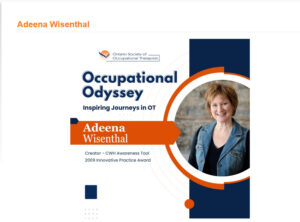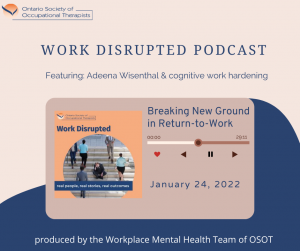Cognitive work hardening: Research
Cognitive work hardening underwent rigorous scientific study to determine its effectiveness in helping people return to work following an episode of depression. Research findings support cognitive work hardening as a return-to-work treatment intervention for this group of people.
The cognitive work hardening program studied was the one at ERGO-Wise known as bridge2work ™. Research results have been published in the Canadian Journal of Occupational Therapy.
Research: Main findings
Self-reported work ability, fatigue, and depression severity improved significantly after participation in the intervention.
Study participants reported the following main gains as a result of participation in the intervention:
- adoption of a routine
- work stamina
- self-confidence
- cognitive abilities
- coping strategies
Study participants reported the following key intervention elements they found valuable for their return-to-work preparation:
- structure of intervention
- customized work simulations
- realistic simulated work environment
- support from occupational therapist
- education
ERGO-Wise’s cognitive work hardening program: Innovative
Approach supported by rigorous research.
Grounded in ‘classical’ work hardening, an evidence-based intervention that prepares people to return to work typically following a physical injury and/or a musculoskeletal condition.
Well-suited to the unique return-to-work issues faced by disability claimants on mental health leaves.
Has also helped people with medical conditions in which cognitive abilities and/or stamina may be affected (e.g., cancer survivors, post-concussion).








